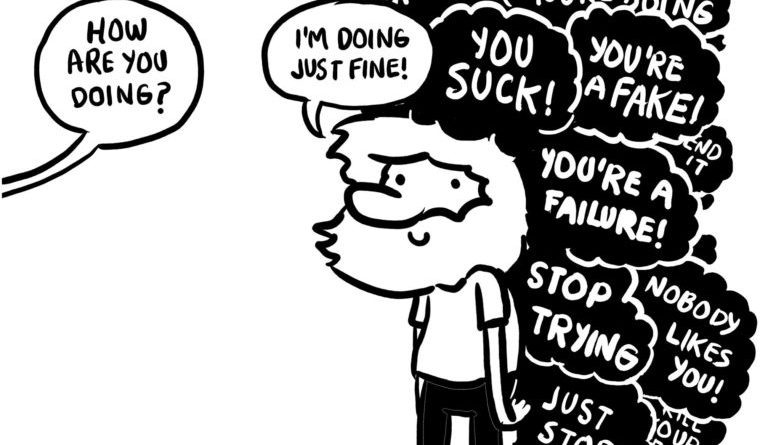Wednesday Wellbeing: How career coaching can help beat Imposter Syndrome by Hannah Lindsell
How career coaching can help beat Imposter Syndrome
By Hannah Lindsell – Career Coach, Founder of HL Coaching
Do you recognise any of the following traits?
- The need to be special or the best
- Characteristics of superwoman
- Fear of failure
- Denial of ability and discounting praise
- Feeling fear and guilt about success
When given an outcome related task, such as a new case, do you immediately experience crushing self-doubt about your ability to take it on, followed by excessive preparation or procrastination?
If you typically respond with over-preparation, the successful outcome will be seen as a result of hard work. If you respond by procrastination, you’ll see success as a matter of luck at the last minute. You won’t see it as a result of your competency and this cycle reinforces with each rotation, with each spin a greater feeling of anxiety and self-doubt. And the more successful you become the feeling of fraudulence only intensifies. It’s as though you can’t internalize your experiences of success.
Sound familiar? This is the Imposter Cycle and twinned with any one of the traits above may mean you are experiencing Imposter Syndrome, a phenomenon first identified in 1978 by psychologists Dr Pauline Clance and Dr Suzanne Imes.
Definition
Impostor syndrome is the feeling of being a bit of a fraud – and the fear of other people realising it – even when you deserve all the success you have.
Did you know that Michelle Obama and Meryl Streep both suffer from impostor syndrome? Meryl Streep, who holds the record for the most Academy Award nominations of any actor ever, once said: “You think, why would anyone want to see me again in a movie? And I don’t know how to act anyway, so why am I doing this?”
Imposter syndrome is different to self-doubt, which everyone feels from time to time. Self-doubt is certainly a part of impostor syndrome, but people who feel like impostors have trouble internalising any accomplishments and struggle to build on their successes.
Prevalence and gender differences
Whilst originally thought to apply mostly to high-achieving women, imposter syndrome has since been recognised as more widely experienced by approximately 70% of professionals at some point in their career, often triggered by a new academic or professional setting.
Interestingly, research has shown that women commonly face impostor syndrome in regard to performance e.g. the perception of ability and power is through out-performing others. Whereas, for men, it is often driven by the fear of being unsuccessful, or not good enough. Despite its prevalence it’s not often spoken about. This could be because it’s hard to identify; easy to explain away; can serve us and it affects those who are afraid of being found out, so unlikely to want to draw attention to it. Unchecked it can be debilitating and have negative impacts on ourselves, our careers and our teams.
Taming Imposter Syndrome
What you can do for yourself?
- Examine your narratives – do they serve you?
- Try to notice and consciously diminish negative self-talk
What you can do for others in your workplace/network?
- Challenge others – gently ‘call out’ imposter language and behaviours
- Look at the workplace cultures/processes that may be feeding imposter syndrome
- Know how to give constructive feedback underpinned by objective evidence
What I can do for you via career coaching?
Coaching can help you understand imposter syndrome and where it comes from, examine its impact on you and your career and develop strategies to combat it and to monitor your progress in challenging it. Through exercises and tools, I can support you learn how to internalise accomplishments, challenge limiting beliefs, showcase strengths and cultivate more helpful patterns of thinking and imposter syndrome can be minimised.
Here are some examples of women I have coached to address imposter syndrome:
Case study 1- DP
DP and I worked together for 9 months. Towards the end of the programme she wanted to explore her imposter syndrome and how it impacted her confidence. I helped her consider what underpinned it, identify what/who might trigger it and what actions she could take to manage it. She identified that she over-prepared for meetings so we worked through what she needed to do and how she would keep to her new found rules.
This is what she said “During our sessions Hannah asked good questions and constructively challenged me. This helped me identify my strengths, opportunities for improvement to better respond to the challenges experienced within my role. It has also helped me to develop strategies to start to overcome some bigger issues such as self-doubt and imposter syndrome”
Case Study 2- JL
JL had experienced imposter syndrome in the past, however, a new set of circumstances at work had triggered it again. The role required her to share her ideas and give her input. However, due to a shift in leadership there is some ‘positioning’ occurring and this left her feeling anxious, unsure and unable to put herself forward. She was become increasingly hesitant about when she should feed into meetings and discussions.
First, I asked her to list 10 things she might need to do to address this uncertainty.
Next, as imposter syndrome results in being unable to vocalise your skills and competencies (despite being outwardly accomplished) I asked her to list 10 skills and competencies she excelled at. After some protestation she produced a list.
In our next session I asked her which of her successes she was not taking ownership of. By making a personal success inventory through listing key achievements -noting skills, capabilities and personal qualities that contributed to these successes- allowed her to make a more objective assessment of her achievements.
This is what she said “With Hannah I have looked at some coping tools, having actions that I can do such as day- to- day: logging successes, mantras, and statements that I can’t question stored somewhere. Having a supportive environment to have talked through the effects and causes of the imposter syndrome has helped me immeasurably and the times when they have interrupted my ability to perform my best has reduced to almost zero”.
If anything in this article resonated for you please get in touch via the website below for a free 45-minute no obligation call to assess and discuss how my Imposter Syndrome Coaching Package can help you overcome these debilitating traits.


